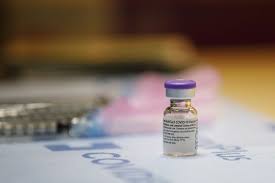First case of allergy reported post corona virus vaccine rollout in U.S.
The first known allergic reaction to the Pfizer inc. covid-19 vaccine was turned up in U.S. as some snarls emerged in the effort to send the shots across the country. A health care worker in Alaska, with no histories of allergies experienced flushing and shortness of breath 10 minutes after receiving a shot, the satte health department said in a department.
The person was admitted to the emergency room and was given Pepcid, Benadryl and epinephrine through an intravenous drip. The patient stayed overnight and currently in stable condition, according to the Alaska health department.
Post this case was under observation, other handful of similar reactions in the U.K were reported, Pfizer vaccine should not be taken by anyone with any sort of severe allergies in the past, suggested by the health officials in U.S.
Regulators recommended last week that people should be monitored for allergy symptoms for 15 minutes after getting the shot, which gained an emergency-use authorization from the Food and Drug Administration on Friday.
Spokeswoman Jerica Pitts said in a statement that the corona vaccine is doing well with local officials, will closely monitor all reports suggesting serious allergic reactions and will update labelling language if needed.
The incident came to light as the first hiccups in the distribution of the vaccine in the U.S. emerged on Wednesday, including a holdup in delivering 3,900 shots to two states and the announcement that Pfizer would deliver about 900,000 fewer doses next week than are set to ship this week.
The authorization of Pfizer’s shot kicked off a massive mobilization effort. Vaccines are being sent from two company production facilities in the Midwest to all 50 states, the first wave in what is expected to be a months-long campaign to inoculate as many people as possible and bring an end to a pandemic that has killed more than 300,000 in the U.S. A similar shot made by Moderna Inc. is expected to gain U.S. clearance in coming days.
One challenge in moving and storing Pfizer’s shot, which it developed with the German drug maker BioNTech SE, has been that it must be kept at ultracold temperatures in specialized freezers and containers. Four delivery trays of the shot were pulled back from delivery to California and Alabama this week and sent back to the company because they were colder than anticipated, according to Gustave Perna, the army general who serves as Operation Warp Speed’s chief operations officer.
U.S. officials also said at the briefing that about 2 million doses of the Pfizer vaccine will be allocated for the country next week, fewer than the 2.9 million available this week when the first shots shipped. They offered no explanation.
Written by – Garima Arora

